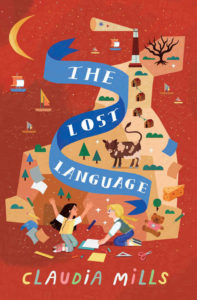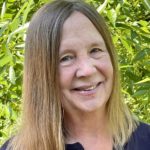“Inviting Student Wonder in the Diversity of the World’s Languages”
When I was a child, I read my way through the Golden Book Encyclopedia. In the volume for E, I became entranced by the entry on Esperanto, a language created in the late 19th century to be a universal language that could be shared by speakers all over the world. How wonderful it would be, I thought, if everyone in the world could speak the same language! I was wild to find a way that I could start learning Esperanto myself.
As the years went by, however, I began to appreciate the amazing diversity of the world’s languages; I no longer valued the search for one single language everyone in the world could speak. When I learned that Earth’s treasury of languages was becoming increasingly endangered by the forces of globalization, I thought how I would have felt if I had known this as a child. Just as, decades ago, I had wanted to learn Esperanto to promote universal understanding, today I would have wanted to learn an endangered language, to save it from utter extinction. This was the seed from which my recent verse novel, The Lost Language, grew.
In the book, my protagonist’s mother is a linguistics professor who does field work to study endangered languages and document their vocabulary and grammar. When my protagonist, Betsy (AKA Bumble), tells her best friend, Lizard, about this, Lizard asks, “What if instead of WRITING about dying languages, like your mom, you and I SAVED one instead?” The girls choose the endangered language of Guernésiais, a distant cousin of French, spoken by just a few hundred remaining speakers on the Isle of Guernsey, in the English Channel between France and England. Lizard and Bumble decide that if they can learn Guernésiais, and teach it to other kids at their middle school, at least a few more people in the world will know this language and be able to speak at least a little bit of it. Of course, this is not how languages in the real world get saved, because language is inextricably tied up with a culture, and a people, and a place. My two characters learn this in the course of the story in a devastating way.
But I hope the book will inspire young readers to become interested in learning about the wealth of the world’s estimated 7000 languages, 40 percent of which are currently endangered through globalization, as young people choose to speak languages that allow them to participate more fully in life outside of their small communities. The website the girls use in The Lost Language is based on the Endangered Languages Project website (endangeredlanguages.com), which features a map of the world where students can click on different countries to learn which languages are endangered there. The website offers resources on how to learn some 3450 endangered languages.
Here are some questions to spark student discussion.
- Do you think it would be a good thing if everybody in the world spoke the same language? Why or why not?
- Possible answers for why this would be a good thing might include: it would be easier to understand people and avoid miscommunication, and so easier to work together for common goals. Possible answers for why it wouldn’t be a bad thing might include: it would be boring! Why would we want to have sameness instead of diversity?
- Do you think there are any endangered languages in the United States? Which languages might be endangered here and why?
- The Endangered Languages Project website reports 167 endangered languages in the USA, primarily Indigenous languages, lost through deliberate attempts to force assimilation of Indigenous people by extinguishing Indigenous culture, including both religion and language.
- One reason to preserve languages is that each language has some words or expressions that convey something difficult to translate into any other language. For example, in German, there is the word schadenfreude, which means “pleasure in somebody else’s misfortune.” In Japanese, wabi-sabi means “finding beauty in imperfection.” The French verb flâner means “to wander aimlessly in a city.” Is there anything you think there should be a word for in English that isn’t a word now? Can you create a new word for it?
- Which language or languages would you most like to learn? Why? Would it bother you if you had to stop speaking in your own language, the language you grew up with, and start speaking in a completely different language? Of course, learning a language is not easy! But even if you could learn the new language effortlessly, what do you think might be lost by speaking only the new language now?
Publishing October 12th, 2021 by Margaret Ferguson Books
About the Book: Betsy is the one who informs her best friend, Lizard, that thousands of the world’s languages are currently threatened by extinction; Betsy’s mother is a linguistics professor working frantically to study dying languages before they are lost forever. But it is Lizard who, gripped by the magnitude of this loss, challenges Betsy, “What if, instead of WRITING about dying languages, like your mom, you and I SAVED one instead?”
As the girls embark on their crusade to learn as much as possible of the near-extinct language of Guernésiais (spoken on the Isle of Guernsey, off the coast of France), their friendship faces unexpected strains. With Lizard increasingly obsessed with the language project, Betsy begins to seek greater independence from her controlling and charismatic friend, as well as from her controlling and charismatic mother. Then tragedy threatens Betsy’s life beyond what any words can express.
Written in verse, The Lost Language takes its characters on a quest both to save the words of a dying language and to find the words to save what may be a dying friendship.
About the Author: Claudia Mills has published over 60 books for young readers, including the middle-grade novels The Lost Language, Zero Tolerance, and Write This Down, and several chapter book series, most recently Franklin School Friends and After-School Superstars. Her books have been chosen as Junior Library Guild selections, named Notable Books of the Year by the American Library Association, translated into half a dozen languages, and nominated for dozens of state readers’ choice awards. She has written all her books between 5 and 7 in the morning while lying on the couch and drinking hot chocolate.
Thank you, Claudia, for this great conversation starter with students and for introducing us to your new book!



Thank you so much for hosting me today!